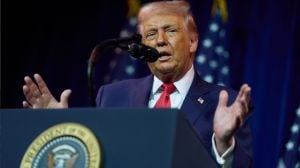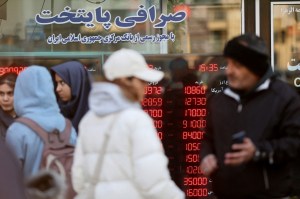FII inflows plummet by 57 pc
MUMBAI, January 11: The South-east Asian crisis and domestic political problems seem to have put a spanner in the works of foreign instituti...

MUMBAI, January 11: The South-east Asian crisis and domestic political problems seem to have put a spanner in the works of foreign institutional investors FIIs in India. Even though foreign exchange reserves of the country had gone up by nearly 22 per cent during the year 1997, there has been a whopping 57 per cent fall in investment by FIIs in the year.
The total FII investment in 1997 amounted to 1.73 billion as against 3.06 billion in 1996, indicating a fall of nearly 57 per cent. As reported earlier, FIIs had pulled out nearly 308 million from India in November and December last year. The factors which contributed to the decline in FII investment are: the crash in Asian stock markets and currencies, political instability and elections in India, depreciation of the rupee against the dollar and the depression in Indian markets.
On the other hand, foreign currency assets of the country had gone up by nearly 22 per cent by 4.35 billion to 24.158 billion during 1997. A major chunk of this came through foreign direct investment FDI in various projects and inflow of dollars through external borrowings and GDR issues.8220;Of this, 2.84 billion was direct investment in the first ten months of 1997. This is higher than the 2.39 billion that came in as FDI for all of 1996,8221; said a study by Mecklai Financial and Commercial Services.
8220;The Asian crisis which is still evolving, will doubtlessly have a negative impact on portfolio flows,8221; it says. However, one section of the market feels that India could actually benefit from all the trouble in Sout-east Asia. They point out that Morgan Stanley has earmarked 10 per cent of its emerging market portfolio to India 8211; which shows an increase from 6 per cent last year.
Said a senior analyst with a leading US-based FII, 8220;the decline in FII fund inflows has much to do with the downsizing being witnessed in the financial sector worldwide and its cascading effect on FIIs operating in India.8221;
Deutsche Morgan Grenfell, belonging to Deutsche Bank, had closed down its India operations. Peregrine India retrenched its staff by one-fourth. BZW8217;s Asian operations are up for sale. Indosuez WI Carr also cut its staff strength. Natwest Markets is expected to change hands in India.
Moreover, foreign broking houses in India have suffered huge losses. Big ones like Jardine Fleming made a loss of Rs 5.5 crore and Morgan Stanley Rs 4.5 crore. Many FIIs also burnt fingers in the highly volatile Indian stock markets. Sensex which touched the 1997-high of 4605 has now fallen to the 3530 level. With the rupee falling continuously and nearing the Rs 40 level against the dollar, FIIs are now keeping away.
Even though the government and SEBI opened up the government securities market for FII investment, FIIs had only invested 106 million so far which is far below expectations. FIIs are now lobbying for investment in treasury bills. If this materialises, FII inflows are likely to get a big boost.
The rise in FDI in 1997 8212; despite the political turmoil, change of governments twice during the year and now elections 8212; has debunked the theory that political instability is not a substantive determinant of FDI. However, with the sentiment toward emerging markets in general is going to take some time to recover, FII investment in 1998 is likely to go down further.
- 01
- 02
- 03
- 04
- 05































